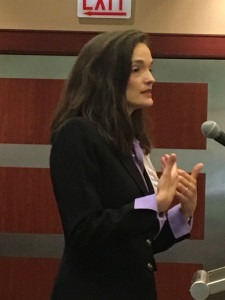
The North Carolina delegation to the AMA was in Chicago for the association’s annual meeting, which officially concludes today. The AMA House of Delegates considered many important issues and voted on resolutions including:
- To support multifaceted, multiagency approaches to combat new psychoactive substances (NPS). Delegates also supported increased NPS surveillance and early warning systems for more actionable information that can quickly aid law enforcement, public health officials, emergency physicians and vulnerable populations in mitigating the growing NPS problem. The HOD also encouraged adequate federal and state funding of agencies tasked with addressing the emerging drug of abuse threat as well as the development of continuing medical education on emerging trends in illicit drug use.

- Called for increasing physicians’ participation on governance boards of nonprofits, for-profit corporations and other organizations and entities whose products and services relate to consumers’ health and well-being. Delegates directed the AMA to give physicians, the public and health care organizations information on the positive impact of physician leadership.
- To work with appropriate organizations to “inform and educate the medical community and the public on the medical spectrum of gender identity.” The authors of the adopted resolution wrote that gender is “incompletely understood as a binary selection” because gender, gender identity, sexual orientation, and genotypic and phenotypic sex are not always aligned. The HOD also adopted policy opposing any efforts that would prevent a transgender person from “accessing basic human services and public facilities in line with one’s gender identity.” Transgender people who live in states with discriminatory policies have “statistically significant increases in mental health and psychiatric diagnoses,” according to the resolution delegates adopted.
Get a complete overview of the action taken at the meeting as well as videos of the keynote speeches on the AMA website.
